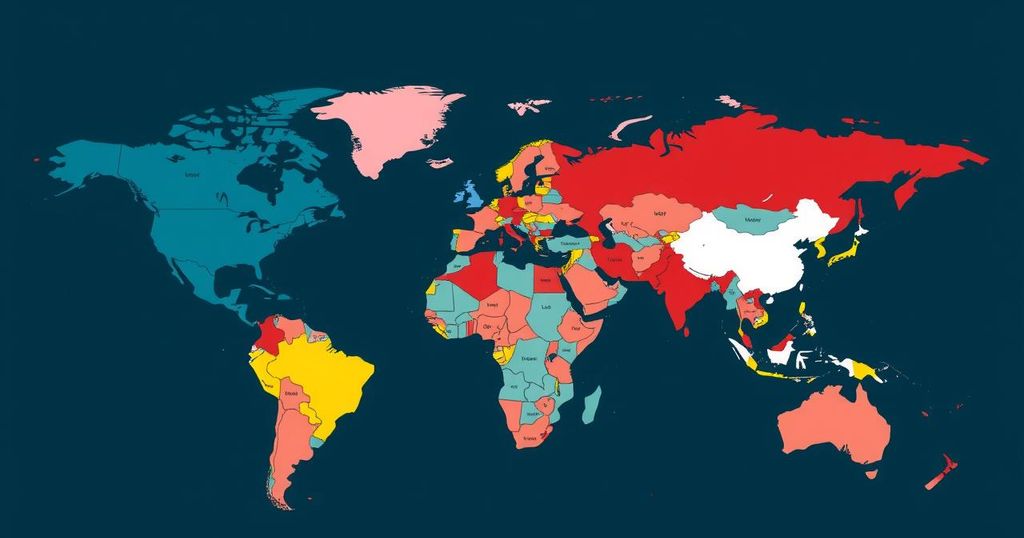This article addresses the worsening humanitarian crisis in Syria due to ongoing violence, demands for accountability regarding human rights violations in Iran, and calls for civic engagement in South Sudan as the country prepares for its first democratic elections.
The humanitarian crisis in Syria is worsening, with ongoing violence exacerbating the situation, as reported by the UN Office for the Coordination of Humanitarian Affairs (OCHA). A recent airstrike at the Ad Dabousiyah border crossing has resulted in multiple civilian deaths, including a volunteer from the Syrian Arab Red Crescent (SARC), and has suspended all humanitarian operations at border crossings. The escalating conflict, particularly in Idlib and western Aleppo, has also cost the lives of children and led to the suspension of numerous NGO activities and health facilities. Despite these challenges, aid deliveries continue through the Bab Al-Hawa border crossing, with assistance from major organizations such as WHO, UNHCR, and UNICEF.
In Iran, survivors of the 2022 “Women, Life, Freedom” protests are advocating for accountability regarding the human rights violations they endured during a brutal crackdown. The Independent International Fact-Finding Mission (FFM) has been collecting testimonies from over fifty Iranian survivors in Germany, highlighting severe abuses such as torture and arbitrary detention. FFM Chair Sara Hossain emphasized the necessity of a victim-focused approach in pursuing justice, while also recognizing the challenges posed by state surveillance and judicial harassment in Iran. The mission plans to report to the Human Rights Council in March 2025, making recommendations aimed at accountability and victim rehabilitation.
Meanwhile, in South Sudan, UN Mission head Nicholas Haysom has urged provincial governors to actively create an environment that fosters civic engagement as the country gears up for its first democratic elections set for December 2026. During the annual Governors’ Forum in Juba, he stressed the role of state leaders in addressing the root causes of conflict and the importance of public service delivery to ensure a free electoral process. His appeal includes initiating training for security forces aiming to strengthen national security leading up to the elections.
This article discusses three critical topics concerning recent humanitarian and political challenges in Syria, Iran, and South Sudan. In Syria, ongoing conflict has led to severe humanitarian issues, prompting concerns from international organizations about the safety of humanitarian workers and operations. In Iran, the focus is on justice for victims of state repression following the protests in 2022, with ongoing efforts for accountability and human rights. Lastly, in South Sudan, the emphasis is on preparations for future democratic elections, highlighting the need for civic freedom and effective governance to support a peaceful electoral process.
In summary, the article highlights the urgent humanitarian situation in Syria exacerbated by violence, the demand for accountability in Iran regarding human rights abuses from recent protests, and the preparations required for upcoming democratic elections in South Sudan. Each scenario underscores the critical need for international support, the adherence to humanitarian principles, and the importance of amplifying the voices of those affected by these conflicts. Countries face significant challenges that require comprehensive approaches to ensure justice, humanitarian aid, and democratic participation.
Original Source: news.un.org







